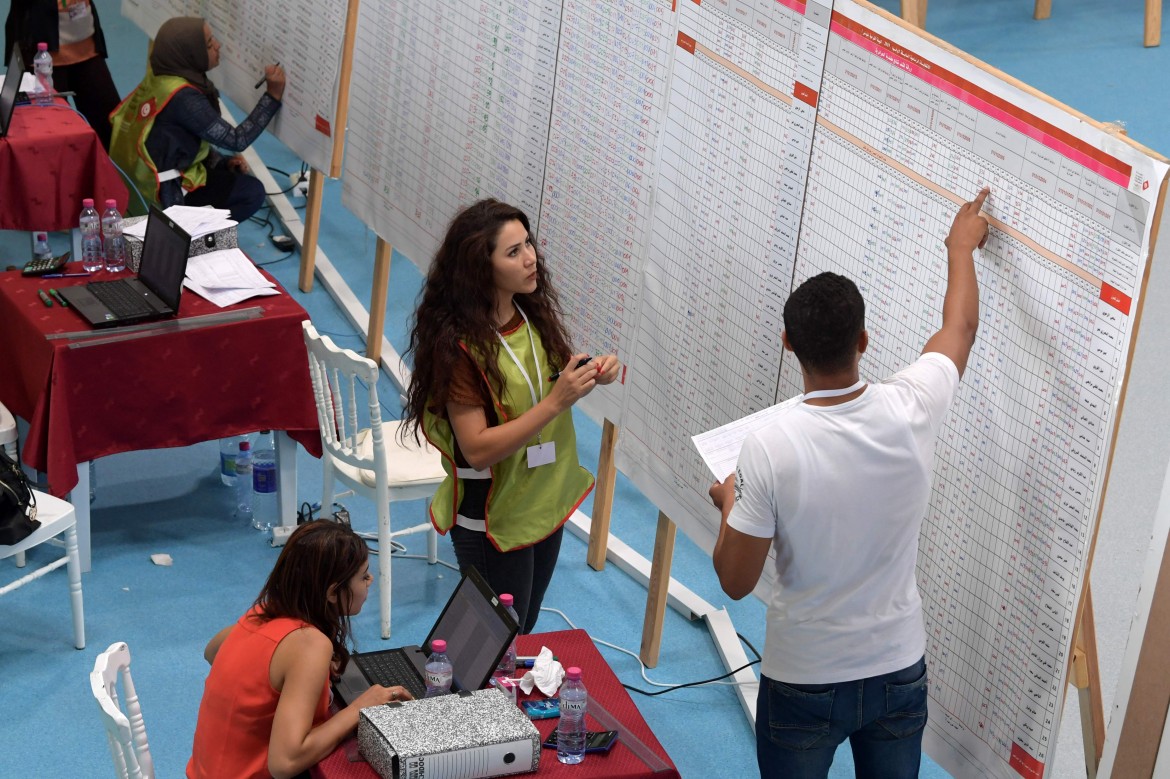Analysis
Between the Salafi and the Tunisian Berlusconi, Sunday’s vote was a surprise
The presidential runoff will feature two anti-establishment figures: the ultraconservative Kais Saied and the the TV magnate Nabil Kaoui. The impulse behind the Tunisian Revolution was not going to die out in a few short years.

Kais Saied versus Nabil Kaoui. The ultra-conservatives versus the populists. The two candidates (out of the 26 running) who finished in the top two spots after Sunday’s Tunisian presidential elections will now compete head-to-head in the runoff, which will take place on a date to be decided, between Sept. 29 and Oct. 13—in any case no later than within 15 days from the announcement of the final results by the Independent Higher Authority for Elections (ISIE).
Sunday’s vote was definitively anti-establishment, against those who have been ruling Tunisia since the Jasmine Revolution. The voters’ disenchantment was also seen in the high abstention numbers. Only 45% of those eligible turned out to vote, 20% less than in the 2014 election, won by Beji Caid Essebsi, who died on July 25 this year.
It was obvious from the start that the impulse behind the Tunisian Revolution was not going to die out in a few short years; however, the fact that the protest vote ended up giving a boost to a “Salafi” and to the “Tunisian Berlusconi” is not a positive signal for the development of the democratic process.
Nonetheless, one can certainly understand the reasons behind the disillusionment of the supporters of the Revolution: corruption, unemployment, social conflicts, inflation and a general inability by the ruling class to manage the country’s problems. An additional factor which discouraged people from turning out was the large number of candidates running on the merits of their personalities, without putting forward a new project for Tunisia.
These elections brought many paradoxical situations to the fore—first of all, the fact that one of the candidates on the ballot is currently in prison for alleged money laundering, without having been tried. Now, many are debating the legal and moral issues connected with having him on the ballot for the runoff election—and not only those who had criticized his detention in the first place.
The supporters of the candidate of the Islamist Ennahda party, Abdelfattah Mourou (who missed the runoff with 13%), are claiming election fraud. They say the results were different from their own data and accuse the “gangster” Nabil Karoui (15.5%) of having used the Nessma TV station he owns to campaign on his behalf—just like the Islamists, in turn, seem to have used their own, Zeitouna TV. Both these TV stations, along with Radio Quran, were explicitly forbidden from taking part in the election campaign by the High Independent Authority of the Audiovisual Commission (HAICA).
It’s certainly true that Karaoui has enjoyed a boost in popularity due to the TV station he founded, but that isn’t the only reason behind his support. After 2016, following the death of his college-age son, he devoted himself to charitable projects to benefit poor villages deep inside the country, which were being excluded from the development projects of the central government. His wife, Salwa Smaoui, took up the role of the face of his electoral campaign after his imprisonment.
Even more surprising was the high level of support for Kais Saied (18.7%), who didn’t have any TV stations backing him and ran a “minimalist” campaign, using little financial resources and not taking part in the televised debates. Not to mention that he doesn’t excel in the realm of rhetoric. His nickname is “Robocop” on account of his steady, droning voice.
However, according to the polls, his hyper-conservative positions attracted a part of the Islamist youth vote—previous supporters of Ennahda—with his identitarian discourse. He is an implacable opponent of the law proposed by President Essebsi to ensure equal inheritance between men and women, and he has also spoken out against the decriminalization of homosexuality and the abolition of the death penalty.
A professor at the Law School of the University of Tunis, Saied is a constitutional law expert who supports a type of “direct democracy” which would provide for the elimination of nationwide legislative elections, with local councils electing regional and national ones.
The current head of government, Chahed Youssef, who was appointed by the secular Nidaa Tounes party and tried to position himself as the one who would put an end to corruption, had a very disappointing showing—and not only because corruption is still alive and kicking.
He had split off from Nidaa Tounes and started his own party, Tahya Tounes, hoping for greater success, but did not fare any better than fifth place (7.4%). Now, in view of the legislative elections on Oct. 6, he has put out a call for the democratic forces to unite in order to avoid abandoning the country to an unknowable future.
However, it seems it will be very difficult to build such an alliance, because the legislative elections on Oct. 6 might coincide with the presidential runoff as well.
Originally published at https://ilmanifesto.it/un-salafita-e-un-populista-il-voto-in-tunisia-e-a-sorpresa/ on 2019-09-17
